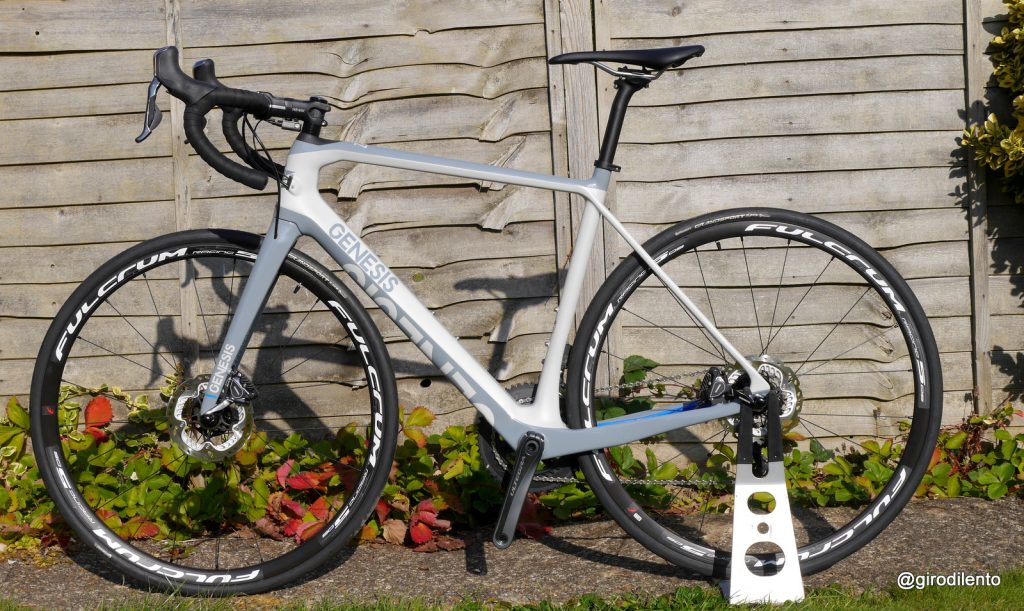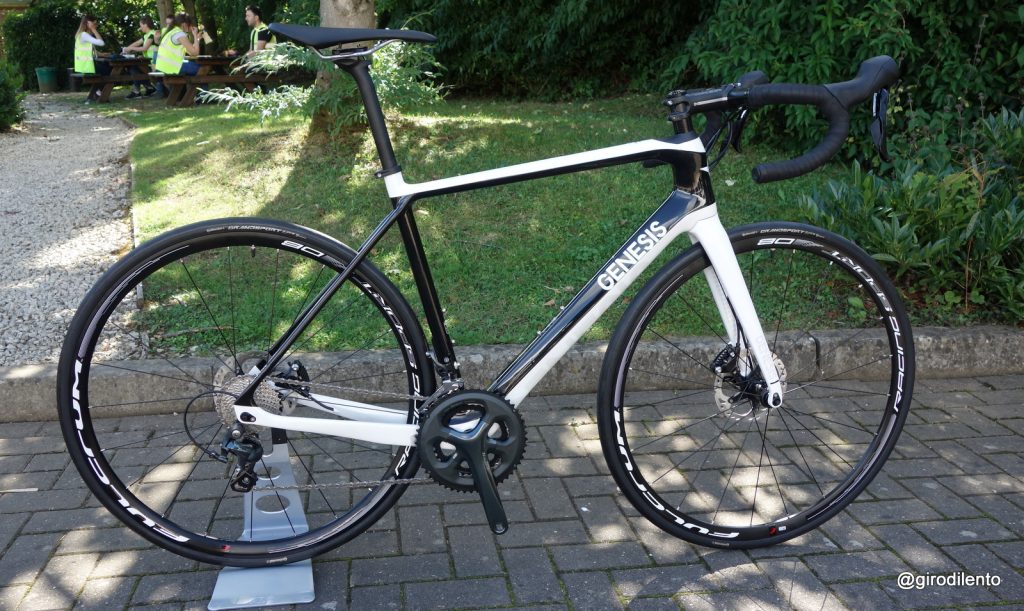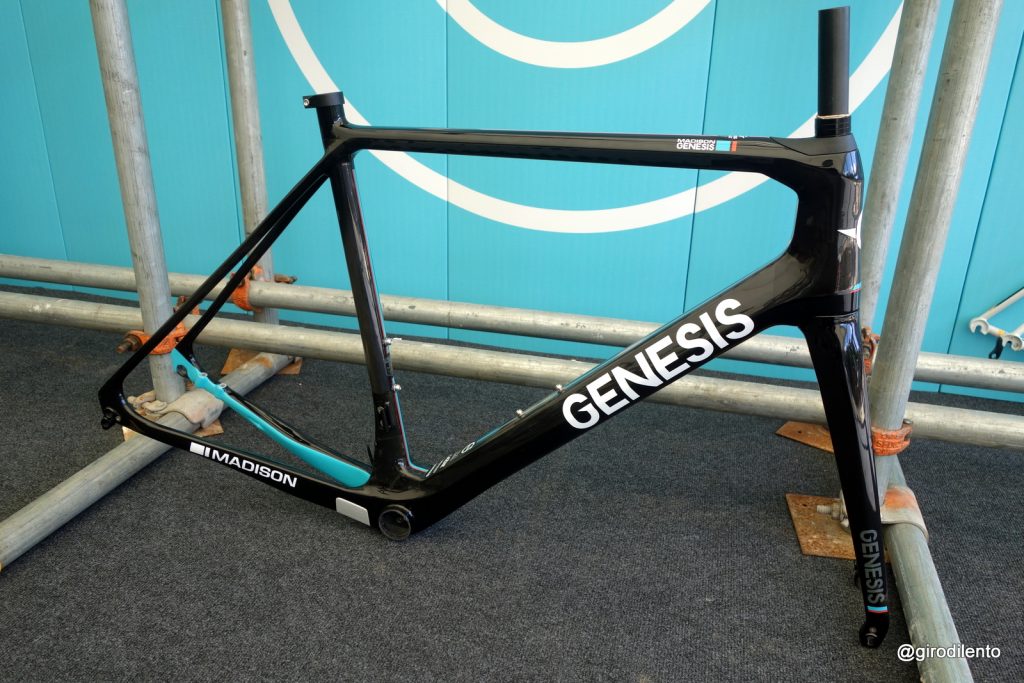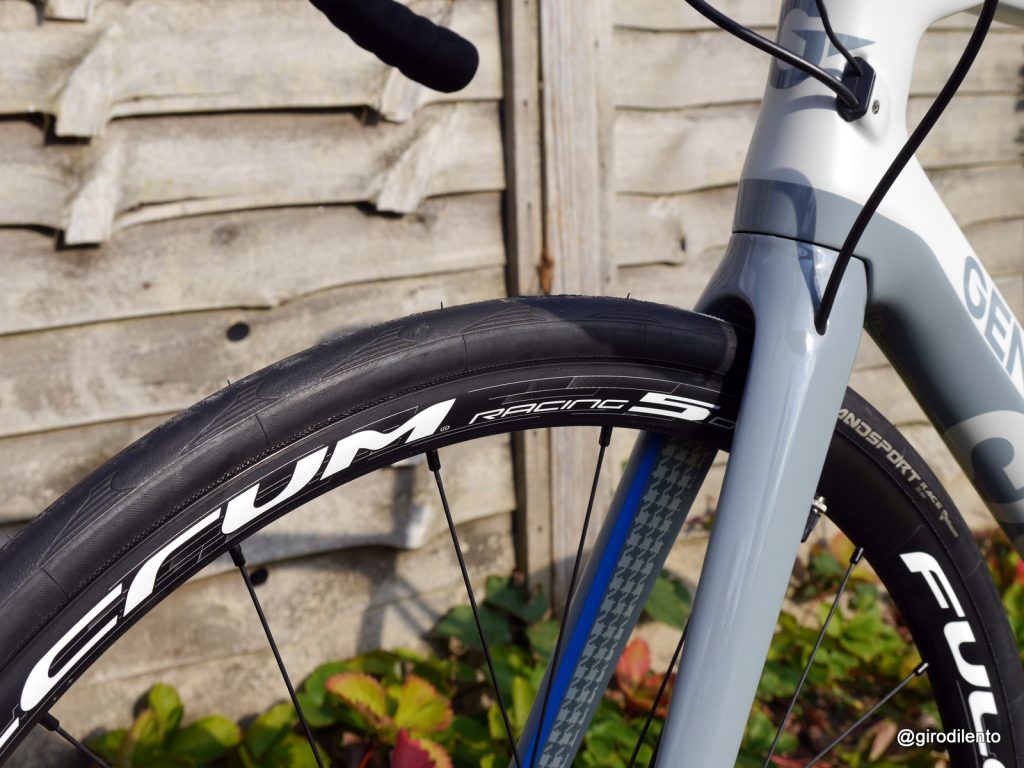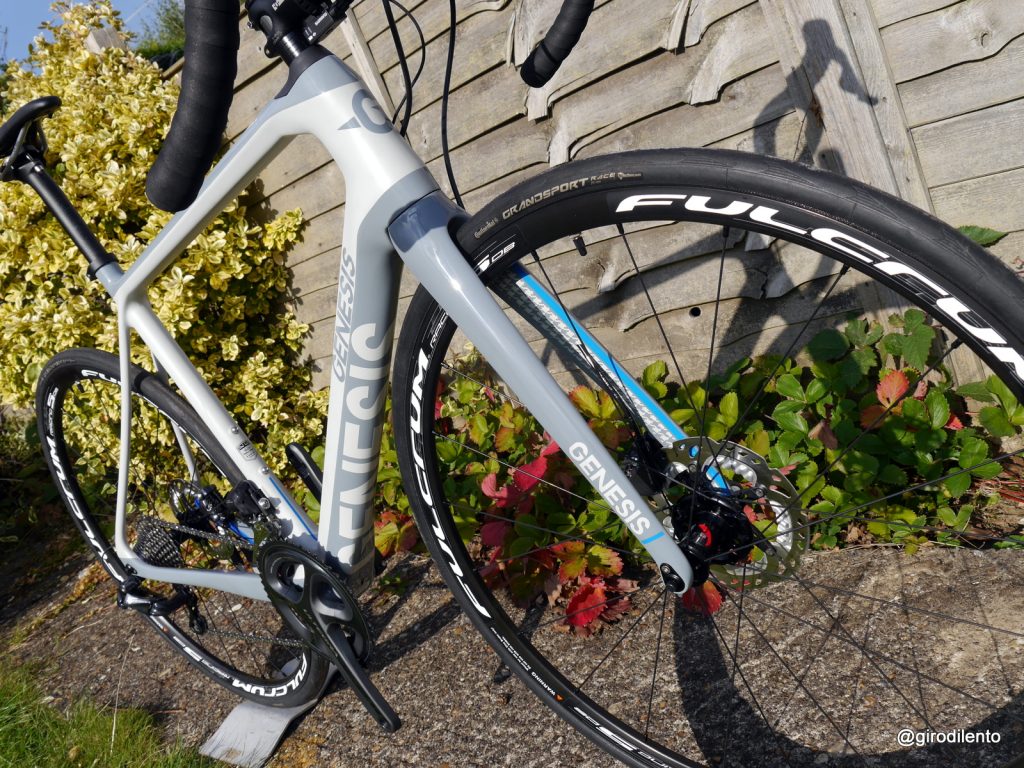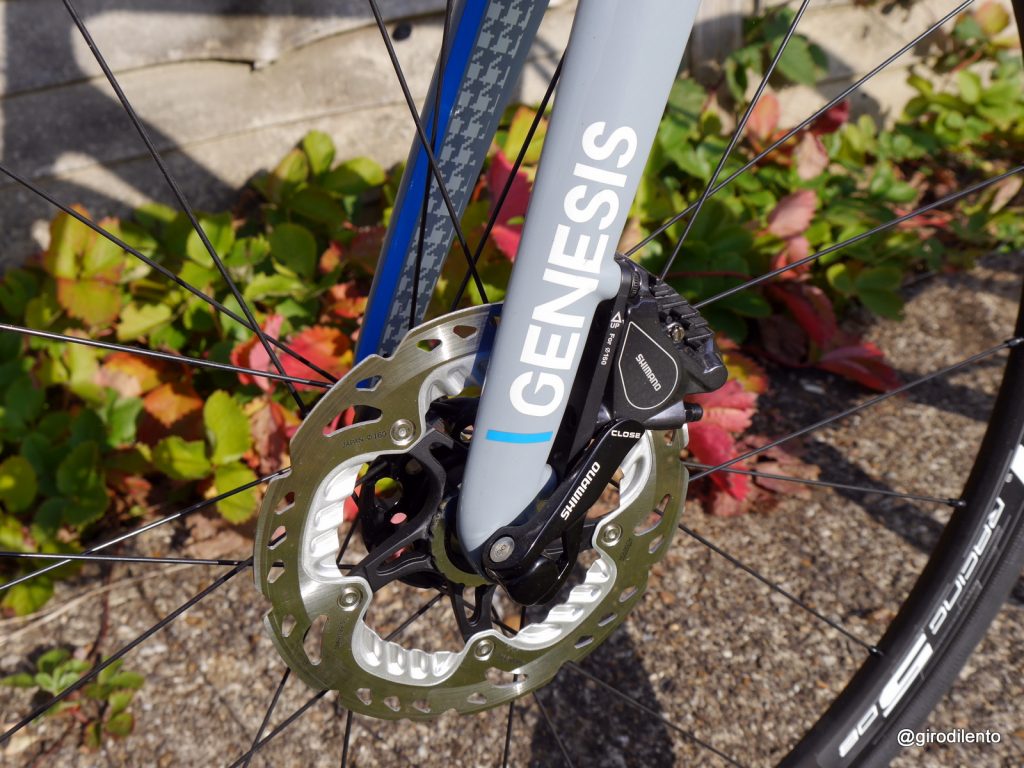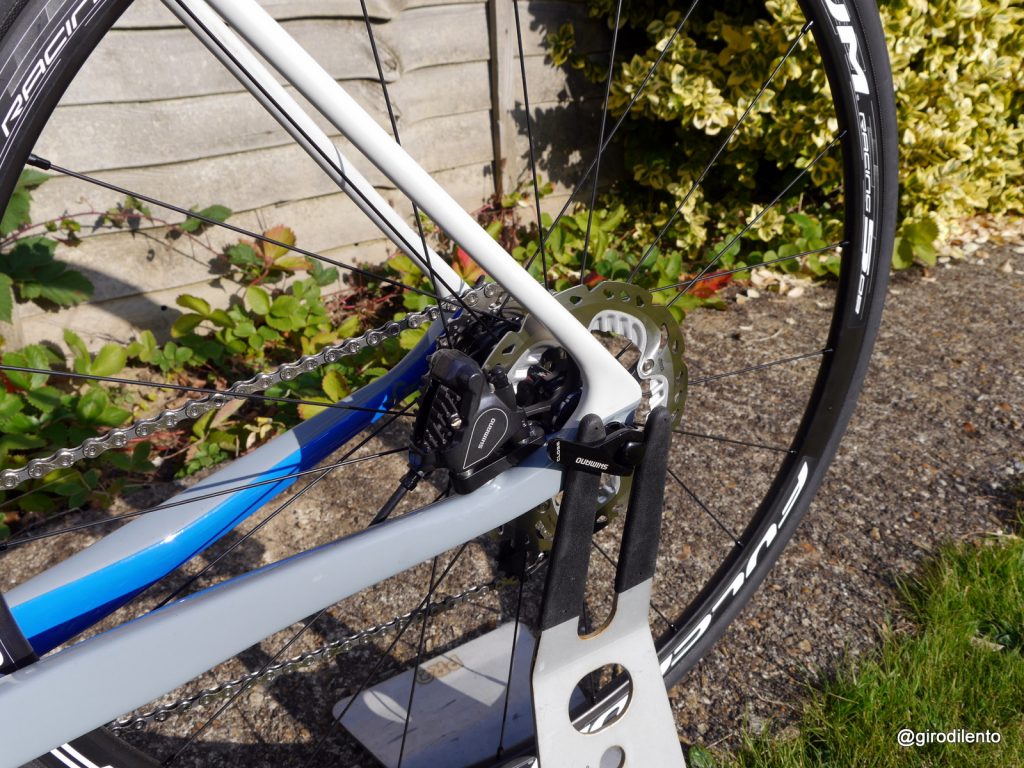The recent 2017 Genesis Bikes launch saw the company release a new carbon road bike, the Zero Disc, in addition to the updated Datum and new Vapour carbon Cyclocross bike.
It’s perhaps not a surprise that a Zero Disc, should join the range alongside the original caliper braked Zero (which continues). What is interesting is that Genesis have taken this bike in a slightly different direction than you might have expected. When most manufacturers are moving to wider tyres and endurance geometry, Genesis have already ticked that off with the Datum. Likewise, the bigger clearances, extra versatility and race geometry is also covered off by the new Vapour Carbon CX bike.
So Genesis have chosen to take a different inspiration for the Zero Disc – the Volare steel race bike. According to Genesis, their pro-team riders universally love the handling of the Volare, so they’ve used this as a starting point for the Zero Disc.
You can see a geometry comparison here and they definitely differ:
From that starting point, they’ve designed a full carbon frameset, complete with bang up to date, 12 mm through axles front and rear as well as Shimano’s flat mount disc brake standard, internal cabling for mechanical or electronic groupsets and a tapered full-carbon fork. Another new feature, is the Prestine headset which I’ve not seen before. It certainly looks to give cleaner lines and a reduced stack height.
The Zero Disc is available now in range of builds. The top end Zero Disc I features Shimano’s fantastic Ultegra Di2 hydraulic groupset, matched 160mm rotors and a pair of Fulcrum Racing 5 DB wheels with Continental Grand Sport 25mm tyres. The complete bike is priced at £3,300.
The next model in the range is the Ultegra mechanical version – the Zero Disc 3 at £2,900. It also features the higher spec RS805 flat mount disc brakes and the same wheels and tyres.
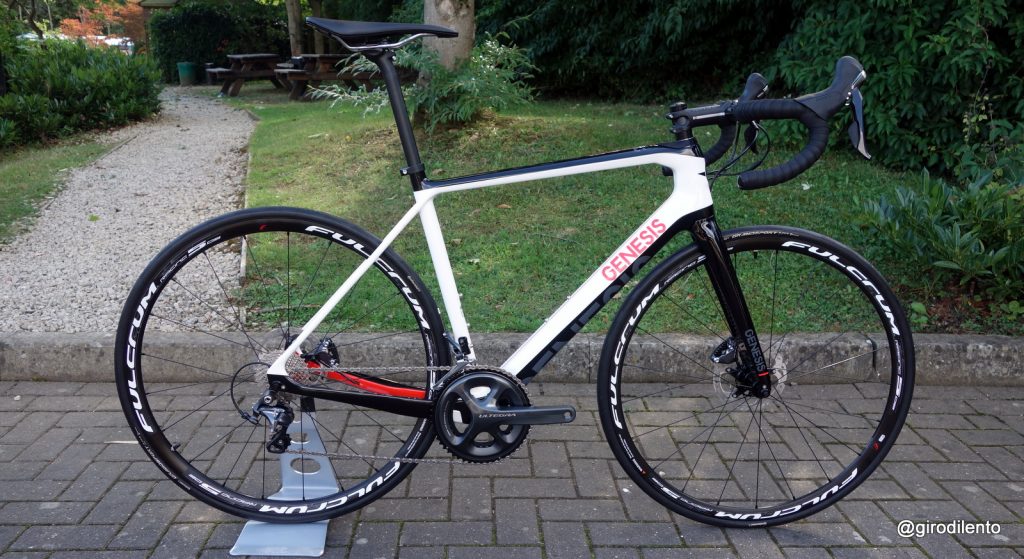
The Genesis Zero Disc 3, looks good in black, white and red, paired with an Ultegra Mechanical Hydraulic Disc groupset
From there, we move to the Zero Disc 2 at £2,400, which is a 105 level build including the 505 levers and hydraulic disc brakes. The Zero Disc 2, moves to the slightly lower specced (but tough) Fulcrum Racing Sport DB wheelset.
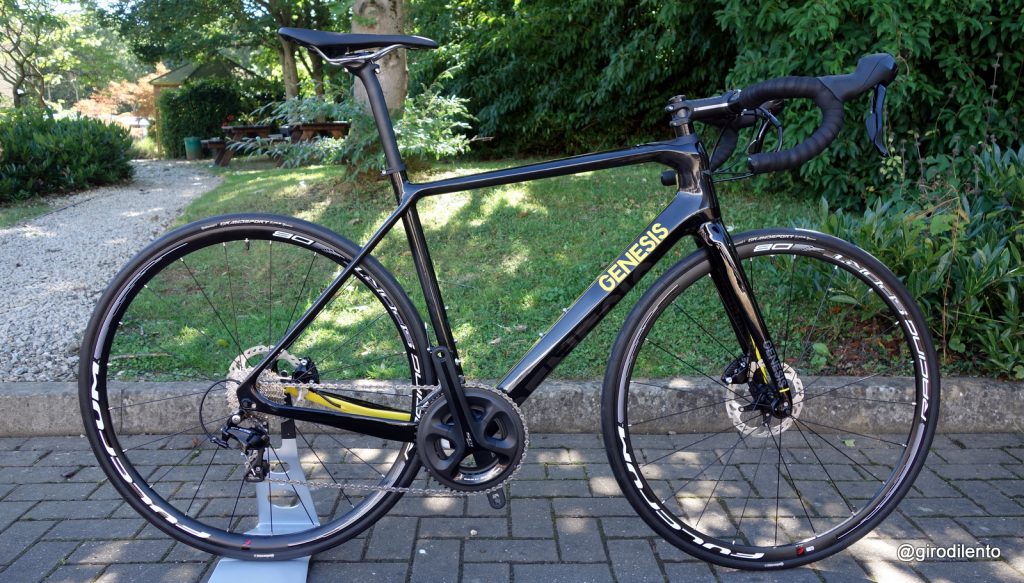
The bumblebee coloured Genesis Zero Disc 2 is another striking colour scheme, paired with a 105 groupset and hyrdaulic disc brakes. This model features the Fulcrum Racing Sport DB wheels too
The final complete bike option is the Zero Disc 1 at £2,200. This features the latest 10 speed Tiagra groupset including the new Tiagra level hydraulic disc brakes and shifters (the 405 models). Again it features the Fulcrum Racing Sport wheels and continental tyres.
All of the bikes are finished with Genesis’s own brand finishing kit, which I’ve always been a big fan of. It’s not the lightest or fanciest in the world but it’s all very well designed and a pleasure to use.
If none of the full bike configurations work for you, you can order a Zero Disc frameset for £1,800, which comes in the same colourway as the top of the range Di2 model or in the Madison Genesis Team colours
.
Genesis have been kind enough to send me the top of the range Zero Disc i Di2 to review and after a couple of busy weeks I’ve finally managed to get a short first ride.
It’s been great to have the bike here for a closer look over and once again it looks like Genesis have done a really nice job of the design – it looks good in the” flesh” and appears well made and finished.
My only initial concern in this age of wide rims and larger tyres is the clearance under the fork.
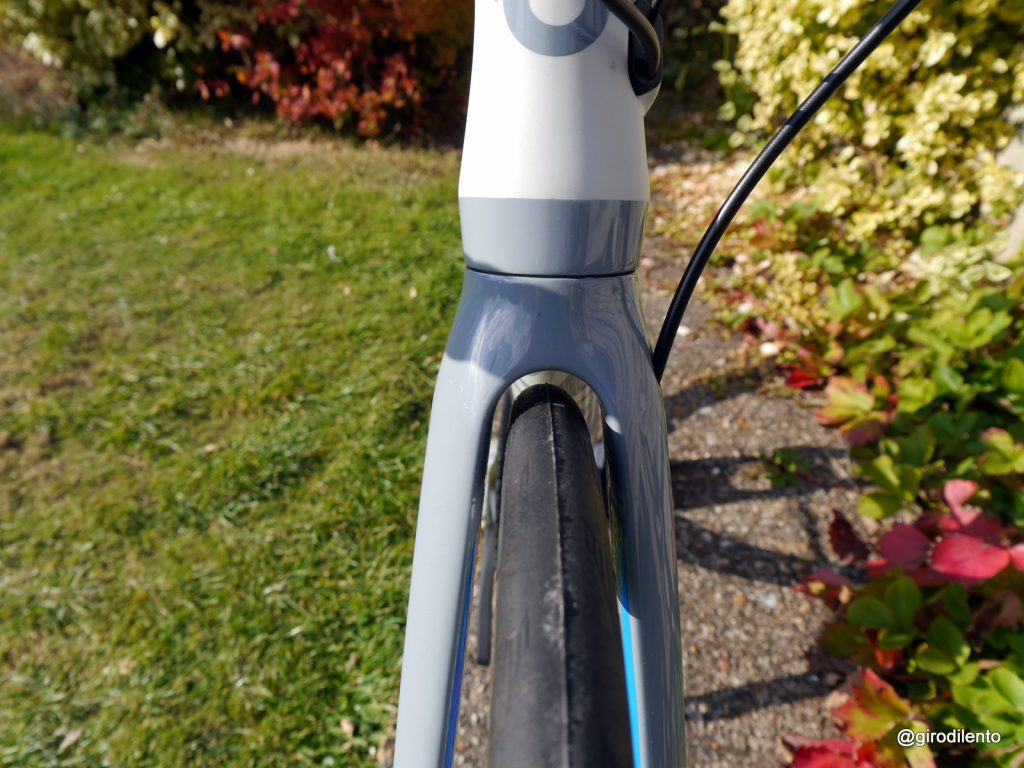
Clearance is fine with traditional (non-wide) rims and 25mm tyres. I’ll be testing wider rims to see how they fit.
The Fulcrum rim is a traditional slimmer rim and even with the 25mm Continental tyres, it doesn’t look like there is loads of spare clearance. I have some Kinesis Racelight Disc wheels that are compatible with this frame (they’re 12mm through axle friendly) but they’re a wide rim. On those wheels a 25mm tyre measures up around 28mm, so I’ll try them and report back. It’s not a super light bike by any means weighing in at 8.2kgs complete but in fairness, it’s not supposed to be. I’ve certainly reviewed heavier disc bikes and the wheels as an example would be an easy way to get the bike under 8kgs.
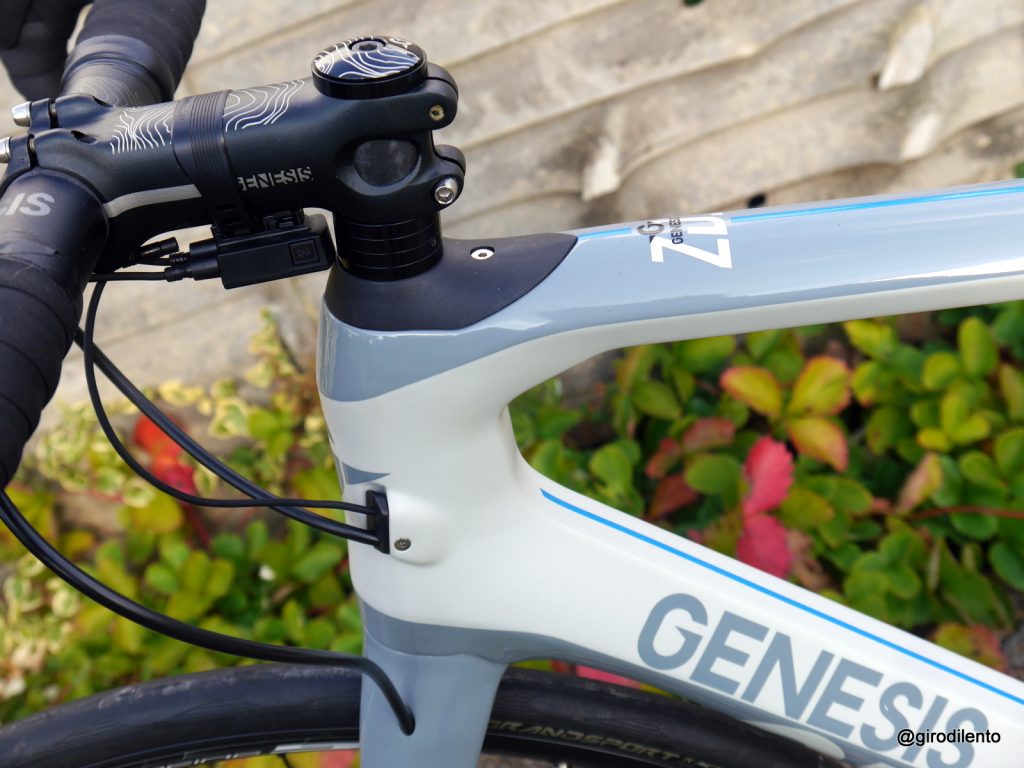
You can see the new Prestine headset and the very tidy cable routing that help the bike look very clean and well thought out
First ride impressions were very positive. The Zero Disc felt comfortable, smooth and had a quick handling front end. The steering was on the lively side and that’s definitely a difference from the endurance geometry bikes that tend to be a bit slower steering.
The Genesis felt nimble and was fun to ride as well as being comfortable, which was an instantly enjoyable combination.
The Ultegra Di2 hydraulic disc groupset is always fantastic. In fact, it’s probably my personal favourite on the market (followed by the caliper version of the same groupset).
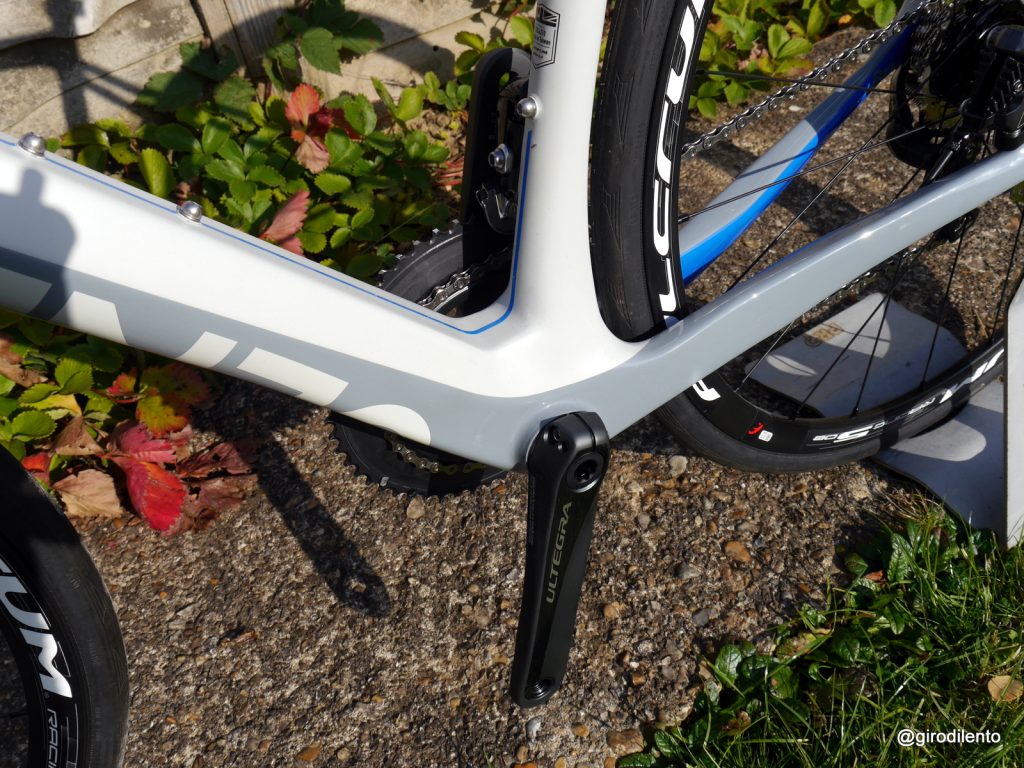
From a first ride this clean looking bottom bracket area does a good job at transfering your power to the road
Oddly, I felt that having the 12mm through axles front and rear was reassuring on some level – it made me feel that the bike was securely screwed together and could handle any change in road surface. I’ve never been unhappy on bikes without through axles but having them front and rear just felt a touch more “secure”. I’m not at my fittest at the moment so steep climbs are a bit more of a struggle than normal but the Genesis did everything well. I’ll look forward to getting some more rides in on it during the next few weeks.
Any questions, please leave a comment.
Thanks for reading.

